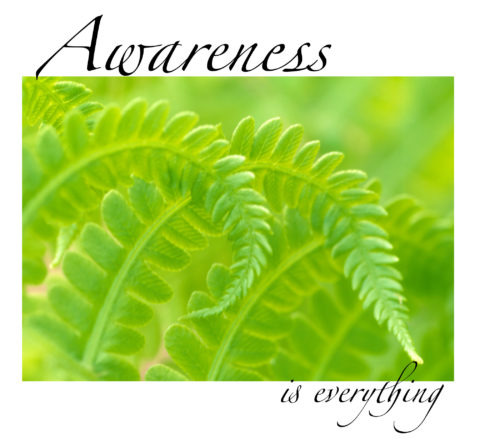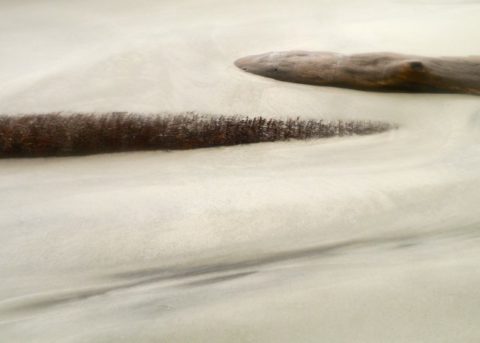
** Books mentioned have Amazon or Bookshop affiliate links, meaning I make a few cents if you purchase through my link. I only recommend books that I’ve read.
During a workshop several years ago, the facilitator, neuroscientist Dr. Dan Siegel, said that “awareness is everything.” This phrase stuck with me. I interpreted it as meaning that the process of being aware is foundational for life.
Often, the word “awareness” is used in terms of becoming more knowledgeable about something, for example, breast cancer awareness (or AIDS, autism, etc.). If we don’t have a direct relationship or experience with someone’s experience, we don’t know how we can help. So, by increasing our knowledge and practicing empathy, we can become more aware.
“Awareness is the ability to perceive, to feel, or to be conscious of events, objects, thoughts, emotions, or sensory patterns.[1] In this level of consciousness, sense data can be confirmed by an observer without necessarily implying understanding. More broadly, it is the state or quality of being aware of something.” ~ Wikipedia
Amazingly profound. Being aware is a state that allows perceptions, thoughts, feelings, senses, etc. to come into consciousness. It is not the thoughts, feelings, perceptions, themselves.
Awareness is a state of deep listening.
What I’ve found since practicing contemplative photography and studying creativity is that this state of awareness precedes knowledge and is a necessary step in the creative process. In his book, Looking into the Light, Sean Kernan says,
“Artwork starts with awareness, with being awake in some new way, knowing that, and following it.”
In other words, it’s not about looking for something in particular or learning something new. Rather, it’s being fully present and open to what is – before conceptual thought kicks in. One of my eternal questions is “how do we live in this open state?” Dan Siegel has something to say about that.
“The three foundational elements of mindfulness — objectivity, openness, and observation — create a tripod that stabilizes the mind’s attentional lens.” ~ Dan Siegel
The first step and key to becoming more aware is to notice and acknowledge our opinions, judgments, rejections, thoughts, feelings, motivations, etc. Through observing ourselves without judgment, we begin to understand why we do the things we do and what our primary motivations are. Our motivations can skew what we see.
 Objectivity – being without judgment, bias, prejudice.
Objectivity – being without judgment, bias, prejudice.
Openness – letting everything in.
Observation – bringing focused attention to what is.
Through understanding ourselves better, we increase our ability to understand others.
One of the best books on the subject of awareness is by Anthony de Mello – Awareness: The Perils and Opportunities of Reality. De Mello was a Jesuit priest who worked in India and was strongly influenced by the Hindu religion. His book presents a mixture of Christian spirituality, Buddhist parables, Hindu meditation exercises, and psychology to help us become more aware. De Mello has a gift for writing in a way that anyone can understand and he is hilariously funny too.
“Those who are self-aware react less and act more.” ~ Anthony de Mello
The best ways I’ve found to incorporate these three O’s into my life is through a meditative or contemplative practice – whether it be mindfulness, writing, or creating art. I prefer a daily contemplative photo walk. These practices bring us into the present and allow us to take that watchful stance. Through regular practice, we are then able to bring this quality of present awareness into the rest of our days.
Joe Henry, in his wonderful interview with Krista Tippett at On Being, said this about self-awareness.
“Well, it’s essential — how close any of us get to it on any given day is up for grabs. Some days, I feel like I have a very good aerial view. I’m the lifeguard above the pool, and I can see everything for better and worse. Plenty of days, I feel like I’m chin deep in the middle of that water. And I don’t know how deep it is. And I am, in fact, a lousy swimmer. But… I have the desire to be aware.”
How do you practice awareness?
Buddha’s Brain – This book by Rick Hansen takes a fascinating look at the science of meditation and how it can lead to happiness. See also Dan Siegel’s many books on mind and brain.
On Being Interview with musician and producer Joe Henry – The Mystery and Adventures of Life & Songwriting (this is all about awareness and how it’s necessary for creativity)
Read this post: How Expectations Affect What We See.
Fascinating. You write such well-thought out and researched posts.
A daily contemplative walk sounds perfect, Kim. I like to do this too. I love that first image of ferns in that gorgeous fresh green. It feels as if it’s in 3D and is coming out of its frame in unfurling beauty!